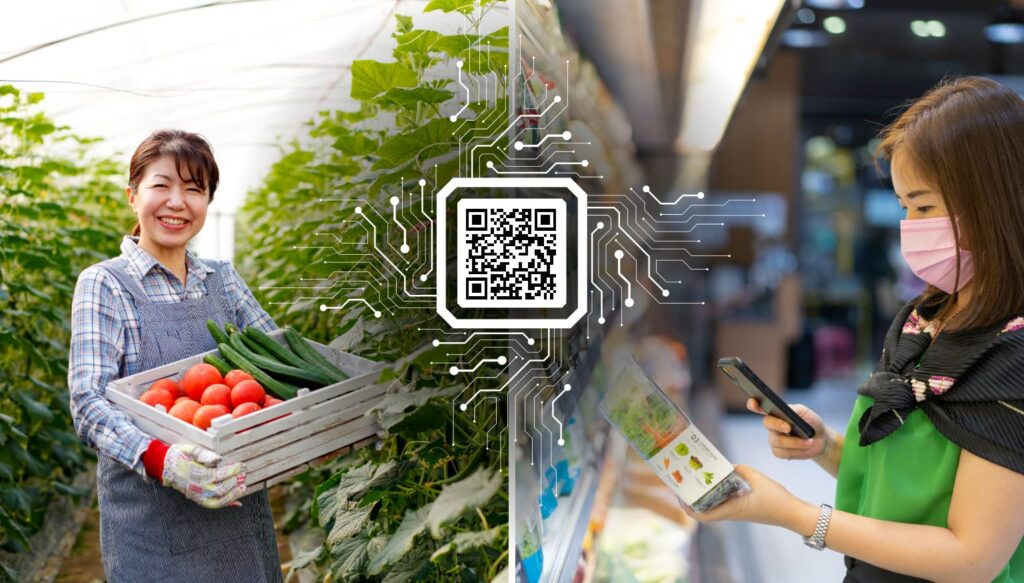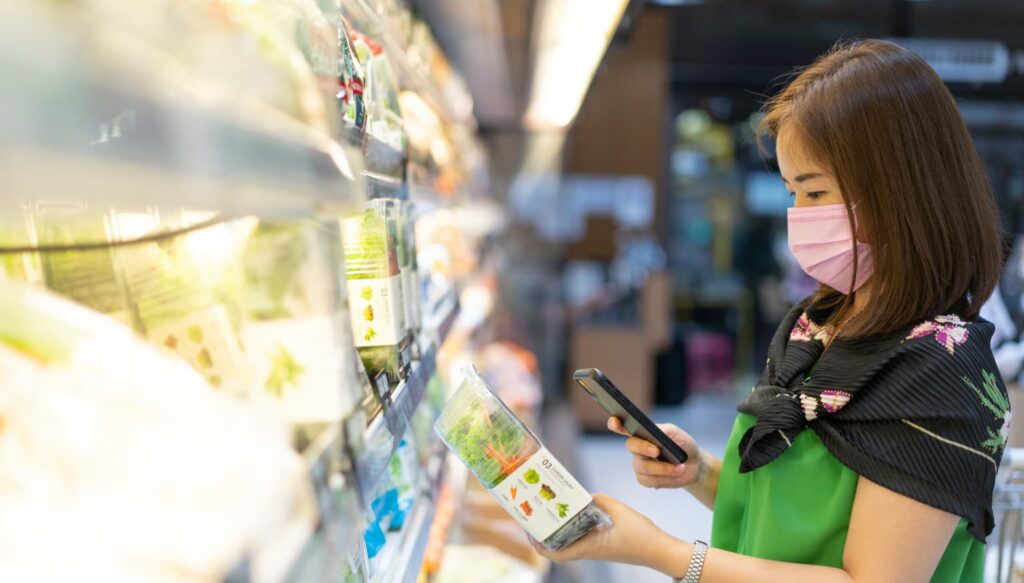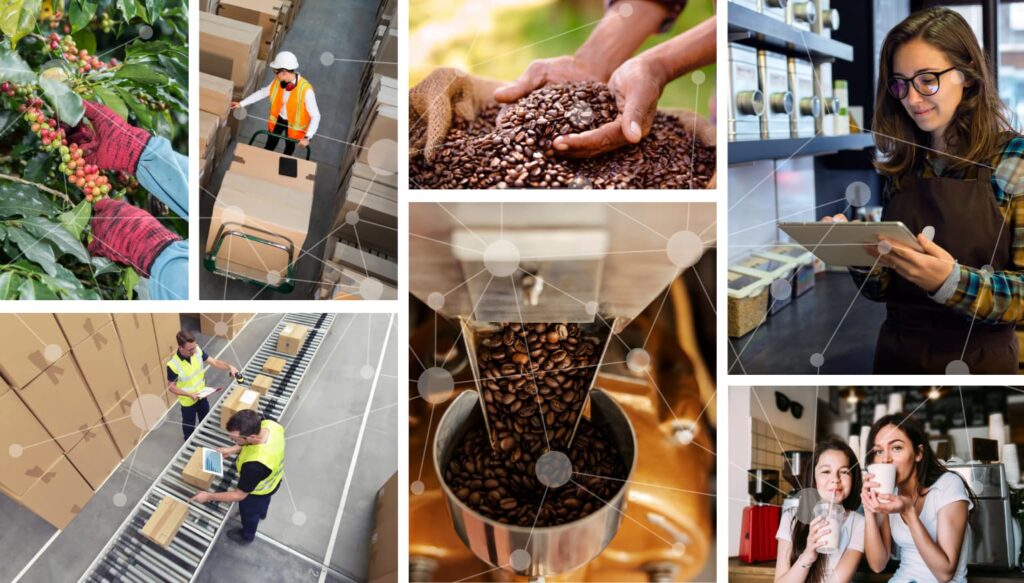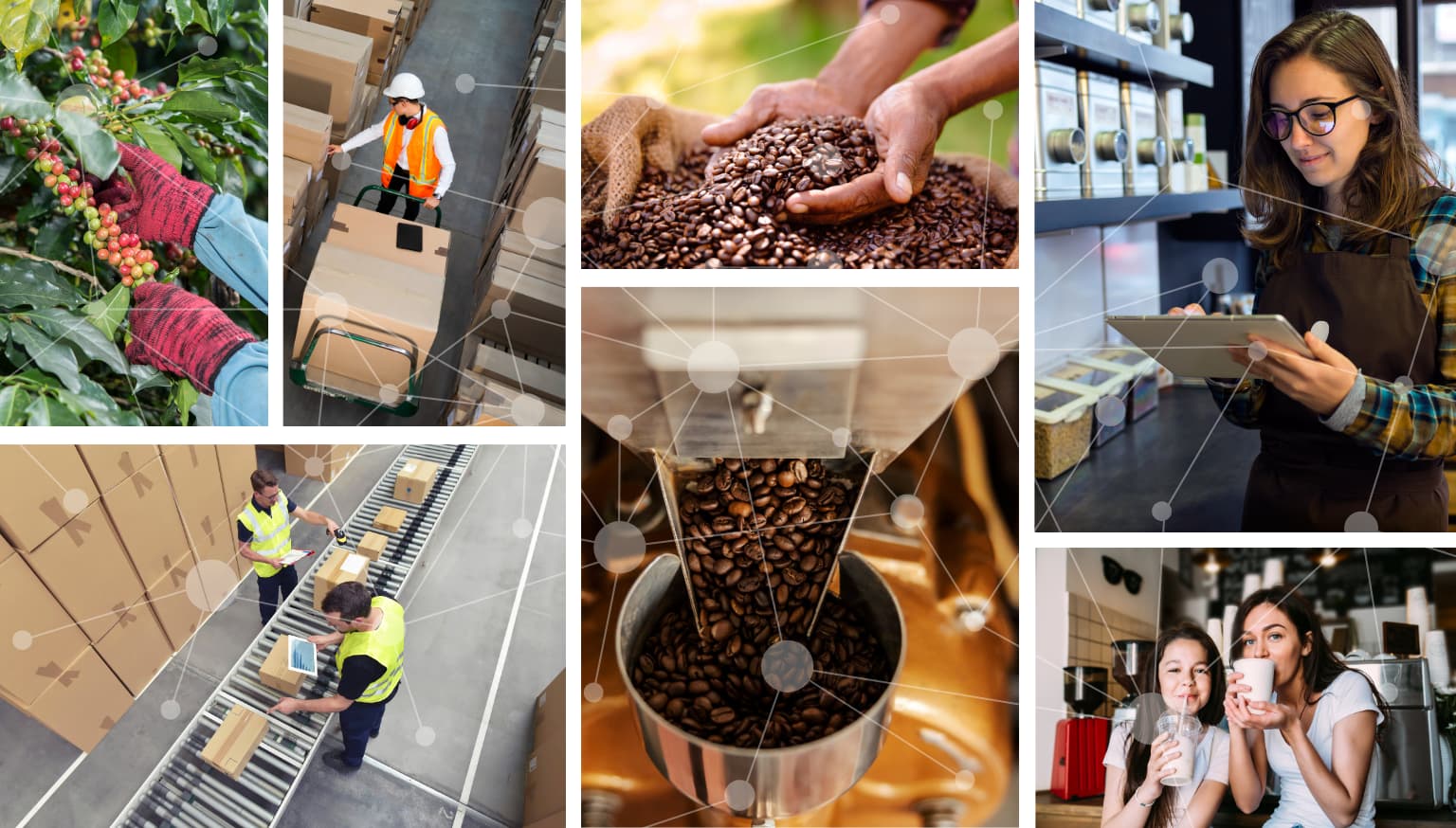Traceability refers to the ability to track and trace the movement of products, materials, or ingredients through various stages of production, processing, and distribution. It involves documenting and recording relevant information such as origin, location, and handling procedures to ensure transparency, accountability, quality control, and safety throughout the supply chain.
Traceability has become a focal point in numerous industries, especially the food and beverage industry. Adulteration of these products costs the industry roughly $40 billion annually and also endangers consumers.
Creating an effective traceability initiative requires you to focus on three key concepts– sustainability, safety, and blockchain technology. Explore the role of these concepts in unlocking the transformative potential of traceability.
The Significance of Sustainability in Traceability

Sustainability refers to the responsible management of resources and operations to meet the needs of the present without compromising the ability of future generations to meet their own needs. Traceability supports sustainability efforts in multiple ways.
Most notably, implementing tracing protocols allows you to document the origins of food products and ensure that they are produced using environmentally friendly processes. Moreover, you can share this information with consumers to demonstrate your organization’s commitment to reducing its environmental footprint and caring for natural resources.

Numerous organizations have implemented traceability strategies to this end, including Whole Foods Market. The company’s system allows consumers to track the origin of organic goods using a QR code or barcode. They can scan these identifiers using their smartphone or via in-store systems.
By promoting transparency, Whole Foods Market has boosted consumer confidence and encouraged more people to purchase organic goods. Your business can follow suit to establish itself as a trustworthy and integrity-driven brand that deserves the trust of its target audience.
Integrating traceability into your supply network isn’t just for consumers, either. You can also create a holistic view of your trade lines and hold your suppliers accountable for the quality of products that they provide.
Ensuring Safety Through Traceability

As a member of the food and beverage space, ensuring the safety of products represents your most pressing responsibility. After all, the health of consumers and your brand’s reputation depend on it. Integrating traceability into the supply chain has already shown a tendency to make food safer and less susceptible to various threats.
During a comprehensive study, the Lloyd’s Register Foundation examined industries that have implemented full chain traceability. The group found that entities involved in producing premium and high-value products were the earliest adopters of traceability technology.
All entities included in the study had taken meaningful steps to reduce risk and improve consumer safety. This was accomplished by using tracking data to pinpoint key threats within the trade lines and proactively address those risks through various measures, such as clamping down on quality control processes.
Blockchain Technology: Revolutionizing Traceability

Blockchain technology represents the foundation for effective food supply chain traceability. Blockchain rates an immutable ledger of transactions that cannot be altered or tampered with, ensuring data integrity and transparency.
In the context of traceability, blockchain enables you to achieve end-to-end visibility and accountability. The technology promotes better information sharing between you and your trading partners, as everyone can rest assured that records are accurate and truthful.
The most notable real-world application of blockchain-enabled traceability systems is fraud prevention. Bad actors cannot alter, tamper with, or delete product records. Instead, you’ll have a reliable record of where products originated.
Challenges and Opportunities

While the benefits of traceability systems are undeniable, there are also some challenges that you’ll encounter along the way. The two biggest hurdles involve trade partner buy-in and technological limitations.
Getting your partners on board can be difficult, but it’s important to emphasize the benefits of traceability. By focusing on the advantages, you can spur them to action.
Additionally, you will have to implement new technologies and processes to support traceability. Although making these changes can be tedious and involve a notable upfront investment, the long-term cost savings will greatly outweigh those initial costs.
Embracing traceability also offers an opportunity to innovate and improve your supply chain. Once you achieve end-to-end visibility, you can pinpoint inefficiencies and implement targeted changes to become more efficient.
Taking the Next Steps in Your Traceability Journey
The traceability revolution has already begun. The only question is whether you will embrace it or get caught playing catch-up. Taking a proactive approach will give your organization a competitive edge while simultaneously helping you maintain consumer trust.
By implementing robust traceability systems, you can enhance transparency, accountability, resilience, flexibility, and efficiency in your operations. So, what are you waiting for? Seize this opportunity and unlock the full potential of your food supply chain.
Pramod Sajja, CEO & President at Paramount Software Solutions (farmtoplate.io).
